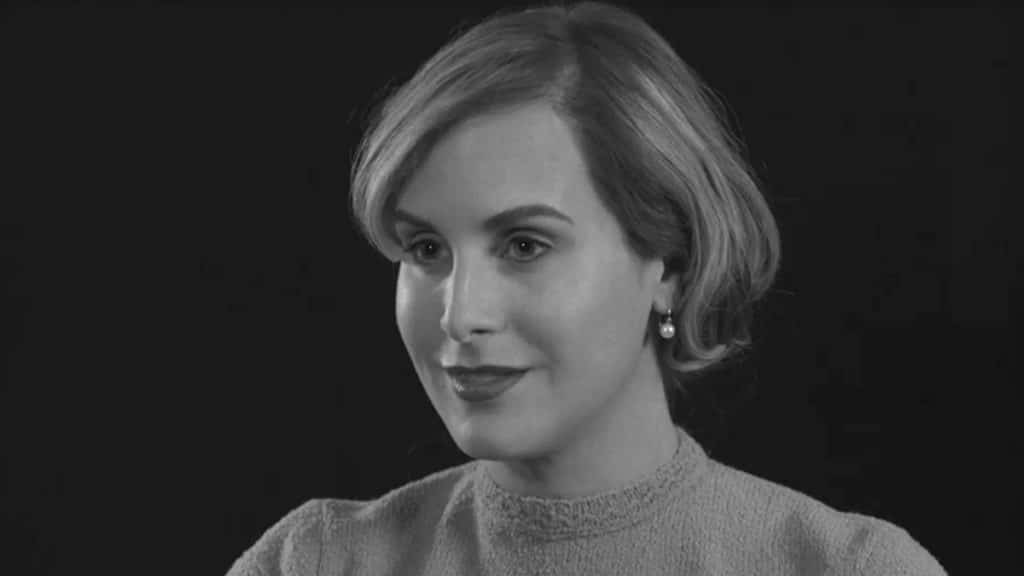Read also:
How to Watch FX Live Without CableHow To Watch AMC Without CableHow to Watch ABC Without CableHow to Watch Paramount Network Without CableThe documentary dives deep into decades-old research to reveal how the framing of trans lives has, and hasn’t, evolved.
(This review is part of our coverage of the 2022 Sundance Film Festival.)
Framing Agnes is more about the frame than any one person or subject. Though it uses a UCLA study participant named Agnes as a jumping-off point, director Chase Joynt’s new documentary is a dense, worthwhile unpacking of the understanding and continued positioning of trans lives.
This documentary began when Joynt and co-researcher Kristen Schilt helped organize archives at UCLA. While doing so, they began seeking any trace of a mysterious woman named Agnes. Their search not only uncovered interviews with her but led to data from a whole group of transfolk. As it turns out, in the 1950s, UCLA was a bustling space of interdisciplinary study, particularly in the social sciences.
Two famous scholars, Drs. Robert Stoller and Harold Garfinkel, conducted interviews with trans and gender-nonconforming folks from the area within this vibrant intellectual atmosphere. One of the participants was a woman named Agnes, who gained eventual infamy for outthinking the researchers. First, she told them what she discerned they wanted to hear to receive gender-affirming surgery. Then, after achieving her goal, she recanted her statements.

Joynt uses transcripts from interviews with Agnes and other participants to recreate the conversations. With this structure, the director delves deep into the messiness of trans history. Elegantly framed as part simulated 1950s talk show and part personal interviews with the actors, we continually flip back and forth to compare and contrast the past with the present. First, the performers recite their “characters’” words verbatim from uncovered transcripts. After that, the actors step out of character to unpack their thoughts. They discuss what their character said, how they said it, and if they relate to those actions and words. This allows for wonderful moments where trans performers and artists like Zackary Drucker, Jen Richards, Angelica Ross, Max Valerio, Silas Howard, and Stephen Ira untangle and retangle theory with lived experience.
It’s evident that this structure of performance and processing strikes a nerve with Joynt’s own “research” participants. Richard and Ross, in particular, have insightful things to say about their struggles with being labeled “exceptional.” Like Agnes, these women have experienced the sensation of society disconnecting them from context to celebrate them as a liberal triumph. The reality is that this is yet another frame that gets particularly jumbled when we try to fit Black transwomen into a narrative designed to exclude them racially.
Though this is a documentary and visually plays with the metaphor of ‘framing,’ Framing Agnes is about how words frame trans lives. For an hour and fifteen-minute documentary, there is a lot of really chewy conversation. Our theorist and scholarly guide Jules Gill-Peterson is well versed in the literature of gender and sexuality. Still, the immersion in intersectional identity politics can be so deep clarity becomes difficult. Instead of pointed to a way through, we’re sometimes led into intellectual cul-de-sacs.
[Joynt] smartly allows trans existence to remain in a murky moral space between truths, half-truths, and untruths
Deeply informed by the history of sexuality posited by Michel Foucault, we see the emergence of trans identity as something caught in the crosshairs of the psychologist, the medical doctor, and the police. While useful, given that Joynt and crew are using social science research interviews as their film’s foundation, we’re never allowed to imagine any alternatives. Even though Gill-Peterson attempts to show how race complicates this narrative, trans folks end up still being more or less made visible by white institutions.
Joynt does well to remind us that resuscitating the past does not atone for the present. He smartly allows trans existence to remain in a murky moral space between truths, half-truths, and untruths. In the end, the frame may be more in focus than the subject of its gaze. Framing Agnes queers a history, but not necessarily a methodology. Nevertheless, it’s a fine primer for understanding how conversations about transness from the mid-twentieth century still loudly reverberate today.
This review is part of our coverage of the 2022 Sundance Film Festival.